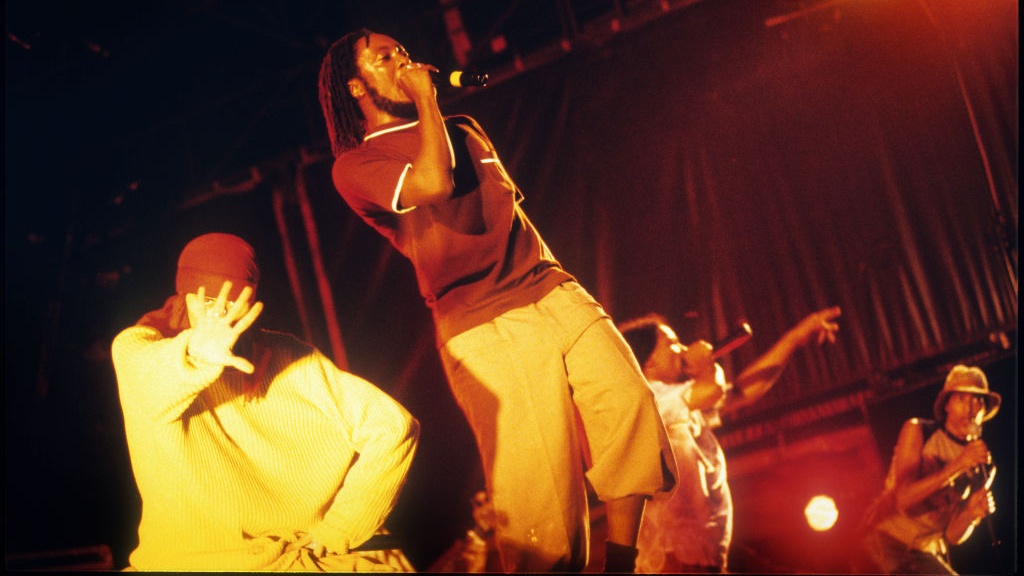Kim Hill has spoken out about some of the comments Black Eyed Peas leader will.i.am made in recent days, congratulating him on the group's massive success but also criticizing him for failing to see how the group intentionally distanced itself from the Black community.
While appearing on Wyclef's podcast Run That Back, will.i.am said it hurt his feelings that the chart-topping group was no longer considered, in his eyes, a "Black" group because of their international success.
“It still hurts a little bit [that] we’re not considered a Black group because we got that big. And when you think of Black Eyed Peas, it’s no longer urban or Black culture, which is not good for the Black community that Black Eyed Peas is not looked at as a Black group…because we’ve had international success,” will.i.am told Wyclef.
He went on to compare the situation to how other genres of music, like rock and roll, jazz and country music, are no longer considered "Black" despite being created by Black people.
The comments caused a wave of criticism online from people who noted that the group went in a very obviously different direction in 2000 after years of performing as a neo-soul hip-hop group. From 1995 to 2000, Hill was the lead vocalist as the group toured and produced music similar to groups like Outkast, A Tribe Called Quest and others.
Hill said she left the group in 2000 due to pressure from label executives urging her to sexualize herself more in their music and performances.
The group eventually held auditions to replace her, originally considering future star Nicole Scherzinger for the role but settling on singer Stacy Ann Ferguson, also known as Fergie. The group then shot to stardom with the hit song "Where Is The Love."
Black folks took to Twitter and Instagram to point out that the switch from Hill to Ferguson was what separated the group from the Black community.
Will. i. am said people stopped calling the Black Eyed Peas a black group because they got too big lol. OR it was because they replaced Kim Hill with Fergie and started making Now That’s What I Call Music music.
— Reid (@RVAReid) January 2, 2021
Black Eyed Peas started as socially conscious alternative hip hop group. But they had to sacrifice a lot of their core to achieve international success. We can’t dismiss something that he chose to leave behind. pic.twitter.com/JfZWInReAo
— Xae (@IsXaeOkay) December 31, 2020
I’m confused, his group changed their formula to go mainstream to pull in a more white audience. They let the black female singer go and filled in with Fergie but he doesn’t understand why blk folks surrender genres they create. He knows first hand ????
— ARIKtheeARIES (@iamericg) January 1, 2021
With several people mentioning her online, Hill felt the need to address the controversy, and took to Instagram to share her thoughts about the statement.
Hill said that she, like many people, felt the group had long strayed from making the "Black" music that they started out producing in the 1990s.
She spoke passionately about what she called "cultural smudging" and said her role in the group's rise to fame was being erased, even as Jean mentioned the group's early beginnings.
"It's not enough for me to be a Black woman," she said.
She said she has always fought for her Blackness and felt like she not only had to sexualize herself but "exotify" Blackness. Hill said that she felt pressure to move outside of her Blackness in order to help the group gain more success.
But she went on to slam will.i.am and the group for demanding acceptance from a community they had actively shunned since they found success.
"You want to have the same community that helped build you and was the foundation of us coming out of the Native Tongue movement to now hold you in the space we now hold Mos Def, and De La Soul, and Tribe, Phife, and Slum Village. These are all our people cause we all toured with them and all these brothers hold me to the highest regard to this day," she said.
"And I don't get it from you, not publicly," she continued. "You want that same community to validate you, and you put a white girl in that place."
In 2019, The New York Times produced a short documentary on Hill and her start with the Black Eyed Peas.
She spoke candidly about the group's initial success as a Los Angeles-based alternative to gangster rap in the 90s, but she noted that even as they toured with major acts like Eminem and No Doubt, will.i.am and the other two rappers still struggled financially.
The group began to be pressured by label executives to shift away from the neo-soul music and image they had to a more pop-focused image.
For Hill, the final straw was when executives asked her specifically to sexualize herself more.
"There was new management now so there was a new set of expectations and pressure. It just started to get clumsy and messy. You want me to grind on will.i.am in a bathing suit. That was being asked of me — never by the guys — but from the executive level," she said.
"How far out on this plank do you want me to go? The tug of war was about my sexuality and how much of that I was literally willing to strip down. I never wanted to be objectified while doing my music," she added.
